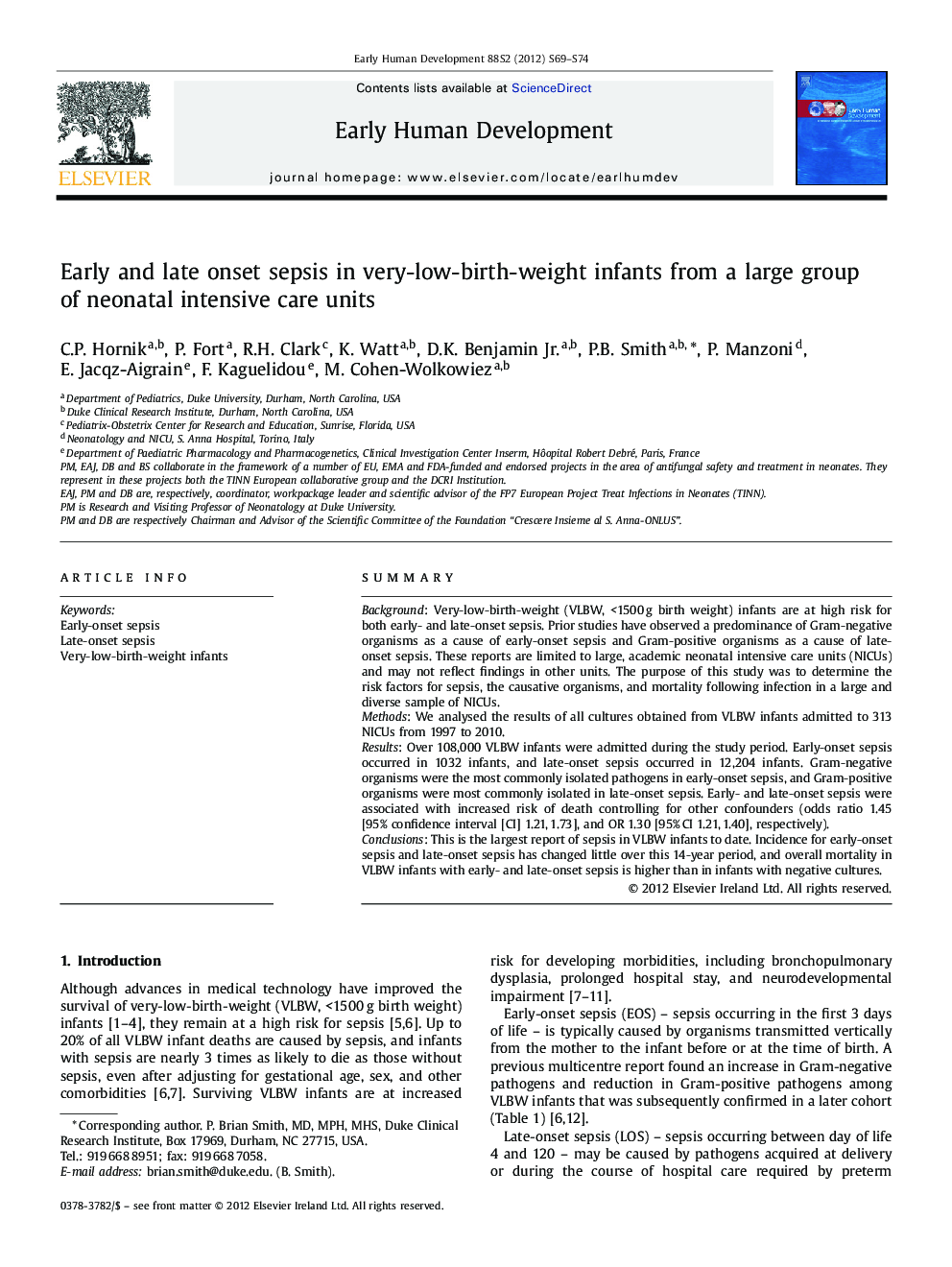| Article ID | Journal | Published Year | Pages | File Type |
|---|---|---|---|---|
| 3917151 | Early Human Development | 2012 | 6 Pages |
SummaryBackgroundVery-low-birth-weight (VLBW, <1500 g birth weight) infants are at high risk for both early- and late-onset sepsis. Prior studies have observed a predominance of Gram-negative organisms as a cause of early-onset sepsis and Gram-positive organisms as a cause of late-onset sepsis. These reports are limited to large, academic neonatal intensive care units (NICUs) and may not reflect findings in other units. The purpose of this study was to determine the risk factors for sepsis, the causative organisms, and mortality following infection in a large and diverse sample of NICUs.MethodsWe analysed the results of all cultures obtained from VLBW infants admitted to 313 NICUs from 1997 to 2010.ResultsOver 108,000 VLBW infants were admitted during the study period. Early-onset sepsis occurred in 1032 infants, and late-onset sepsis occurred in 12,204 infants. Gram-negative organisms were the most commonly isolated pathogens in early-onset sepsis, and Gram-positive organisms were most commonly isolated in late-onset sepsis. Early- and late-onset sepsis were associated with increased risk of death controlling for other confounders (odds ratio 1.45 [95% confidence interval [CI] 1.21,1.73], and OR 1.30 [95%CI 1.21, 1.40], respectively).ConclusionsThis is the largest report of sepsis in VLBW infants to date. Incidence for early-onset sepsis and late-onset sepsis has changed little over this 14-year period, and overall mortality in VLBW infants with early- and late-onset sepsis is higher than in infants with negative cultures.
